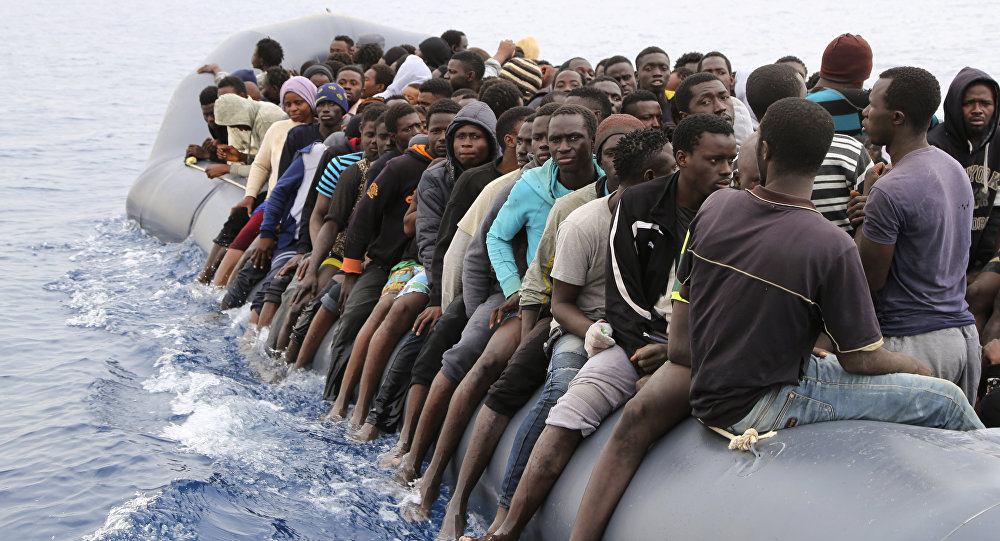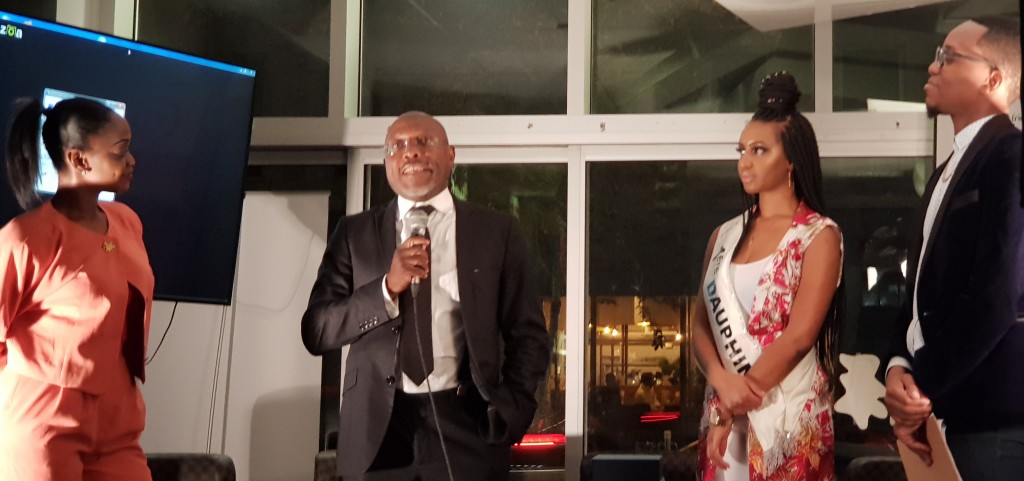Why Togo’s Dr. Samuel Mathey deserves the Nobel Prize in Economics

BY SOUMANOU SALIFOU
To say that Africa boasts top-notch economists who, for decades, have made valuable contributions to the world economy—including their own—in the context of international organizations, is to state the obvious. The continent, however, has been graced with Nobel Prizes in several categories going way back to 1960, except in Economics. Dr. Samuel Mathey, a shining star of the new breed of African economists, has demonstrated a strong dedication to positively impact the continent’s economy for generations to come, and stands as a perfect candidate for the Nobel Prize he is now seeking.
Impressive academic credentials and professional track record
Dr. Mathey is a professor of economics, strategy and management. He holds a Ph.D. in Economics and an MBA from the universities of Delaware and Ohio State, and a Masters in Econometrics and Monetary Economics, as well as a Bachelors in Accounting and Information Systems. He lectures in the U.S., Europe and Africa, and has worked with major consulting, auditing and accounting firms (including KPMG and PwC). He has led several projects and conducted multiple workshops and seminars across the world and in Africa. Dr. Mathey has published several articles, and his latest book, “Zero capital export-drivenentrepreneurs: the economic game changers,” is starring on Itunes and Amazon.
“The Agric Entrepreneurs Training on Zero Capital Entrepreneurship program is creating bright perspectives in Africa.”
An innovative approach to tackling youth unemployment
Dr. Mathey is the founder of the The African Foundation for Entrepreneurship and Economic Development (AFFEED), an NGO that promotes entrepreneurship and the concept of Zero Capital and Export-Driven Entrepreneur (ZCE).
After years of field testing and coaching, Dr. Mathey, working with leading institutions such as the African Development Bank, is using the copyrighted concept as an answer to the high unemployment among the youth across the continent. Specifically, the training and coaching programs are focused on how to start a company with zero or low capital and make it export- or expansion-driven. A welcome concept in the face of the difficult access to credit and market/contract met by most base of the pyramid.
A theory well put into practice
According to data provided by the foundation, it has trained so far 100,000 youths, both male and female, in fifteen countries and four languages: French, English, Portuguese and Arabic. The countries include Angola, Benin, Cape Verde, Cote d’Ivoire, DRC, Ghana, Madagascar, Liberia, Mali, Mauritania, Niger, Nigeria, Senegal, and Togo.

The following data help grasp the significance of the ZCE as a much-needed tool to defuse the time bomb that are the African youth underemployment and unemployment, and to persuade the African youth to stop risking losing their lives in the Mediterranean in pursuit of a better life in Europe.
-
Africa’s population is projected to reach 2.4 billion by 2050
-
65% of the African population is under 25 years
-
The youth represent 60% of Africa’s unemployed population
-
80% of Africa’s working population is under-employed
In answer to the above, the Agric Entrepreneurs Training on Zero Capital Entrepreneurship program is creating bright perspectives:
-
80 to 90% attendance rate at the training sessions
-
99% satisfaction rate
-
40 to 55% female attendance
-
60% of participants go into action a week following the training
-
40% of companies created after the training survive beyond six months
-
25% of the companies created reach 33% annual growth rate
-
45% of the companies create new jobs before the first 12 months
The African Diaspora not forgotten
Driven by a calling of sorts to promote African entrepreneurship anywhere, Dr. Mathey recently co-organized the first edition of the Delali Awards, a ground-breaking ceremony honoring African entrepreneurs in the diaspora. The lavish event, held in Montreal, Canada on 14 September, honored diasporan African entrepreneurs in nine categories. The objective, as Dr. Mathey and his pioneering associates stated, is to transform the African entrepreneurs operating in the diaspora into an army of job-creators and wealth providers who, by advancing the economies of their host-countries, will, at the same time, change the negative perception of the mother continent. In his closing remarks, Dr. Samuel Mathey stated his ambitious plan to build by the year 2030 in the diaspora an army of one million African entrepreneurs dedicated to servicing their host-countries and humanity.

An intellectual globe-trotter’s well-deserved recognition
By bestowing this much-deserved honor on Dr. Samuel Mathey, an intellectual globe-trotter of Togolese origin who studied in Europe and the United States and lectures on all three continents while now living in Cote d’Ivoire, the Nobel committee would likely stimulate other groundbreaking endeavors in multiple other fields in Africa, thereby uplifting an African continent that is suffering from too many woes.
Africa would be proud to see her son Mathey’s name written in gold alongside that of a legend such as America’s Paul Samuelson, the 1970 Nobel laureate in Economics, as she earns one more spot after those secured by her other sons and daughters including Wole Soyinka (the 1986 laureate in Literature); Nelson Mandela (the 1993 co-laureate for Peace); Wangarĩ Muta Maathai (the 2004 laureate for the environment) and a dozen others.


